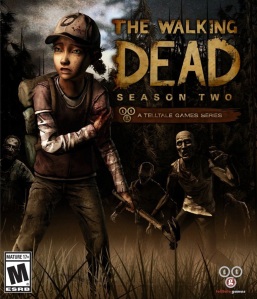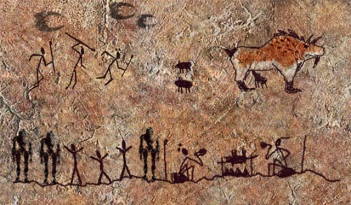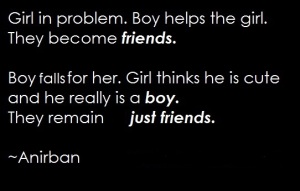I am announcing Slaughterhouse-Five by Kurt Vonnegut is Book of the Month (BOTM) (What is this? ) for September.
Slaughterhouse-Five by Kurt Vonnegut
My rating: 5 of 5 stars
When I bought this book paying double price for the number of pages, I was quite depressed. But this 177 page classic does what most of the books fail to do: to present a terrible and macabre situation in an awfully casual and indifferent tone. I have never read a book that mocks value of lives to this level, and that too with a touch of humour.
Nearly 135000 people were killed in Dresden, Germany(more people than in Hiroshima); a place totally inhabited by civilians with no military or artillery resources what-so-ever. This was a very illogical attack (Is logic even exists in war?) and was tactically kept away from public so that people don’t start hating America.
“It had to be done,” Rumfoord told Billy, speaking of the destruction of Dresden.
“I know,” said Billy.
“That’s war.”
“I know. I’m not complaining.”
The way this story is presented with continuous time traveling in back and forth that the whole life of Billy seems as a whole picture in every line mixed with millions of emotions. The absurdity and illogicality of war is depicted aptly with introduction of the theory that nothing is there called free will.
“How—how did I get here?”
“It would take another Earthling to explain it to you. Earthlings are the great explainers, explaining why this event is structured as it is, telling how other events may be achieved or avoided. I am a Tralfamadorian, seeing all time as you might see a stretch of the Rocky Mountains. All time is all time. It does not change. It does not lend itself to warnings or explanations. It simply is. Take it moment by moment, and you will find that we are all, as I’ve said before, bugs in amber.”
“You sound to me as though you don’t believe in free will,” said Billy Pilgrim.“If I hadn’t spent so much time studying Earthlings,” said the Tralfamadorian, “I wouldn’t have any idea what was meant by ‘free will.’ I’ve visited thirty-one inhabited planets in the universe, and I have studied reports on one hundred more. Only on Earth is there any talk of free will.”
Billy simply had no control over whatever was happening with his life and that’s the sole concept of war, isn’t it? And guess what was more painful; you can’t do anything about it but accept your FATE. Can you respond to your death prophecy like this:
He declared,
I, Billy Pilgrim, will die, have died, and always will die on February thirteenth, 1976.
…
Billy predicts his own death within an hour. He laughs about it, invites the crowd to laugh with him. “It is high time I was dead,” he says. “Many years ago,” he said, “a certain man promised to have me killed. He is an old man now, living not far from here. He has read all the publicity associated with my appearance in your fair city. He is insane. Tonight he will keep his promise.”
There are police around him as he leaves the stage. They are there to protect him from the crush of popularity. No threats on his life have been made since 1945. The police offer to stay with him. They are floridly willing to stand in a circle around him all night, with their zap guns drawn.
“No, no,” says Billy serenely. “It is time for you to go home to your wives and children, and it is time for me to be dead for a little while—and then live again.” At that moment, Billy’s high forehead is in the cross hairs of a high-powered laser gun. It is aimed at him from the darkened press box. In the next moment, Billy Pilgrim is dead. So it goes.
This casually letting go of lives with “So it goes” is the USP of this book, showing us how really small and cheap lives are.
There are not many cases, where the author got emotional in such a difficult and inhuman situation (getting emotional is the most normal thing to do here). But when he did, it was magic.
There were diffident raps on the factory window. Derby was out there, having seen all. He wanted some syrup, too.
So Billy made a lollipop for him. He opened the window. He stuck the lollipop into poor old Derby’s gaping mouth. A moment passed, and then Derby burst into tears. Billy closed the window and hid the sticky spoon. Somebody was coming.
A city (which was one of the most beautiful cities in world) was diminished to mountains of rubble, and Billy was returning home.
Billy opened his eyes. A middle-aged man and wife were crooning to the horses. They were noticing what the Americans had not noticed—that the horses’ mouths were bleeding, gashed by the bits, that the horses’ hooves were broken, so that every step meant agony, that the horses were insane with thirst. The Americans had treated their form of transportation as though it were no more sensitive than a six-cylinder Chevrolet.
…
Billy asked them in English what it was they wanted, and they at once scolded him in English for the condition of the horses. They made Billy get out of the wagon and come look at the horses. When Billy saw the condition of his means of transportation, he burst into tears. He hadn’t cried about anything else in the war.
All I can say now that, this is the best, best anti-war black-comedy I have ever read. Oh, I forgot; the author himself was there in Dresden when it was slaughtered. So it goes.














